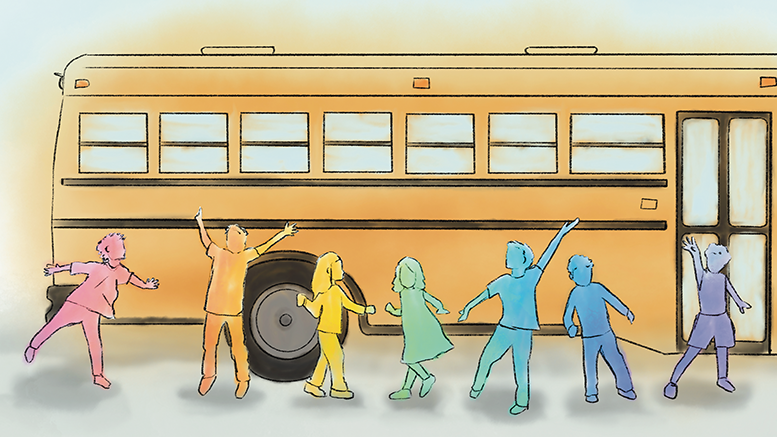Janine Newton Montgomery’s journey into school psychology began as a kindergarten teacher. When her role teaching students to read led her to cross paths with a school psychologist, she felt drawn to the career’s focus on processing difficulties and understanding how children learn.
While enrolled in graduate school and training to enter the field of school psychology, she found herself continually working with children on the autism spectrum.
“As I worked with these kids, I noticed that despite the many challenges that they had, they had remarkable but often unnoticed areas of strength,” Newton Montgomery said. “As a former teacher, that was very meaningful for me in terms of understanding that we can do things to help them show their strengths and even compensate for areas that are more difficult for them.”
Ultimately, Newton Montgomery decided to focus her research and clinical practice on children with autism.
“I didn’t pick autism as a research and clinical area, it picked me,” she said. “The people I worked with were so phenomenal and really touched my heart.”
Today, she is a professor in the U of M’s department of psychology and the program coordinator for the university’s school psychology program.
Newton Montgomery also runs the U of M’s Social Cognition Lab. Social cognition is a science-based approach to analyzing how people understand their emotions and the emotions of others, and navigate the social situations presented by everyday life.
The majority of the lab’s work is centered around autism, as people on the autism spectrum often find social cognition challenging. Those with autism tend to struggle with emotional intelligence. Newton Montgomery noted that this relationship presents a good model for studying emotional intelligence while also providing avenues to positively impact those with autism.
Emotional intelligence refers to the ability to perceive, control and express emotions effectively in interactions with others. While one interpretation of emotional intelligence looks at levels of problem-solving ability, the other focuses on the characteristics associated with that ability, such as optimism, flexibility, and stress management.
“I first used that concept in my clinical work to identify areas and strategies that we could use to improve the social interactions of people on the autism spectrum and, later on, I saw some research potentials there particularly related to enhancing quality of life for people on the autism spectrum,” she said.
Studies show that emotional intelligence can be increased in all people, said Newton Montgomery. Intervention projects at the Social Cognition Lab have designed programs for people with autism that provide education about emotional intelligence, opportunities to talk about emotions and knowledge about social norms and rules.
“Our findings are that we’re making a difference, not only in emotional intelligence, but in quality of life overall,” Newton Montgomery said. “People say that they’re happy, or have more friends, they’re able to process work situations that are social, better.”
She explained that those on the spectrum may find their strengths overshadowed by their challenges. While people on the autism spectrum may have a harder time navigating social demands, they take diverse approaches to tasks and are often highly skilled in specific areas.
“There are many innovators out there who happen to have autism, and they can be innovators when we ensure that our attitudes and our environments don’t get in the way,” Newton Montgomery said.
She added that autism is highly prevalent. To improve relationships with people on the autism spectrum – whether as a teacher, friend or ally – asking them about how best to provide support is crucial.
“Every person on the spectrum is unique,” said Newton Montgomery. “It’s called the spectrum because everyone is so diverse.”


